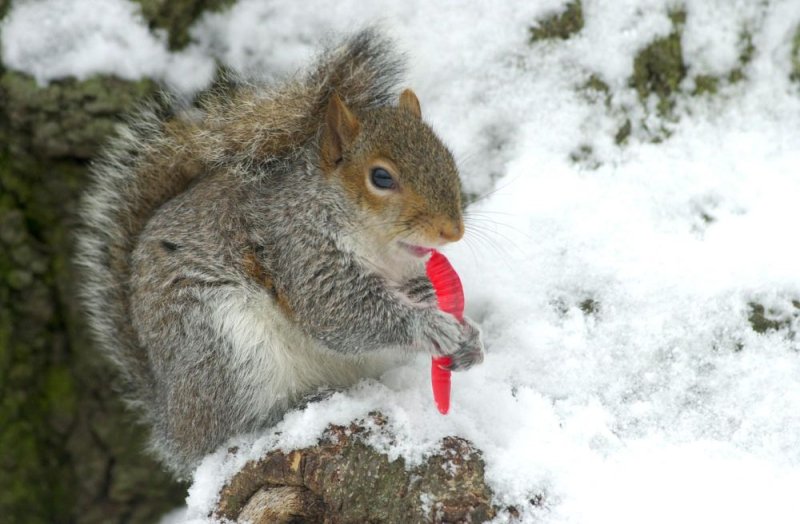EAST LANSING, Mich., April 21 (UPI) -- If the woods get crowded, mother squirrels improve their offspring's odds of survival by ramping up offspring growth, U.S. and Canadian researchers say.
Ben Dantzer, formerly with Michigan State University's zoology department and now a postdoctoral researcher at the University of Cambridge in England, said the study showed for the first time how females' use social cues to correctly prepare their offspring for life outside the nest.















